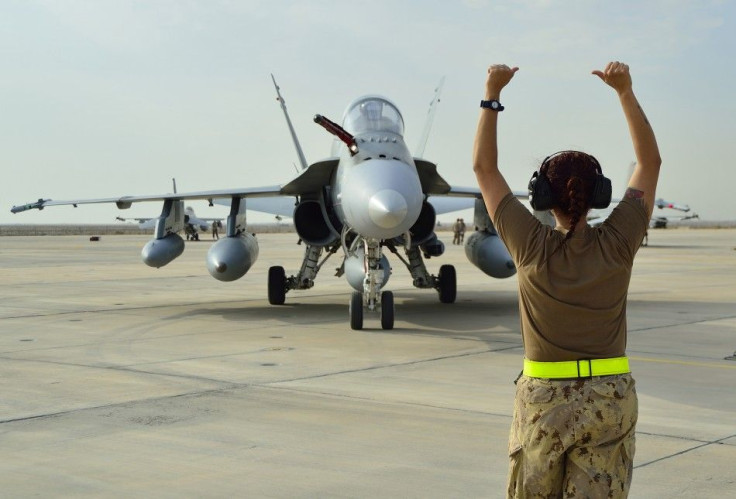Canada’s Official ISIS Mission Starts On Weekend; Kuwait Uneasy

Canada will be dropping its first bombs against ISIS and other jihadists this weekend, barely a month after the House of Commons approved the country's to go into war versus the radical militants. Kuwait, meantime, has gotten fidgety over its participation in the battle.
Lt.-Gen. Jon Vance, the head of Canadian Joint Operations Command in Ottawa, said the CF-18 fighter jets, C-150 Polaris and CP-140 Aurora surveillance planes stationed in Kuwait are already "on target" to launch operations against the ISIS jihadists side by side with other allies of the U.S.-led coalition. But he won't reveal what Canada's first target will be.
The host of the Canadian airbase, however, is maintaining an eagle's eye observation on the ongoings. Quoted by the Canadian Press, George E. Irani, an international studies professor at the American University of Kuwait, said Islam believers in the country, while taking "a pro-Western position," actually are "maintaining a neutral stance."
The small country is also doing its own monitoring on the ISIS, given that a mere 600 kilometres away lie the Islamic State fighters on the outskirts of Baghdad. Irani said Kuwaitis are discussing just how much dangerous really could the ISIS be to them. He stressed that the country also has a "large, important, powerful Islamist presence," hinting attacks could be launched by homegrown radicals inspired through the Internet. The ISIS is largely known to conduct aggressive recruitment campaigns over the Internet.
Proof that the ISIS is doing a massive campaign in Kuwait is the presence of fake Twitter accounts enticing the locals to join the blood-hungry movement. Canadian Press said about 2,000 Islamist fighters who went to fight against the Assad regime in Syria have recently returned to Kuwait. Although Irani said not all of them are extremists, he can only guess about the others.
Canada's participation in the war against ISIS was necessary, Canadian Prime Minister Stephen Harper had said, because it is a government duty to protect the security of each and every Canadian. The threat posed by ISIS is "real," he said earlier. Canada's participation into the combat mission will only be good for six months, or until early April 2015.
But former U.S. Secretary of State Hillary Clinton had said the ISIS' growth won't be stopped and its strength won't be curbed unless all allies promote an information war as aggressive as that with the group's online campaigns.
Related:
Canada Officially Goes to War vs ISIS, House of Commons Greenlights Airstrikes
Hillary Clinton on ISIS: Military Action Critical But Not Enough to Stun Growth of Radical Group





















